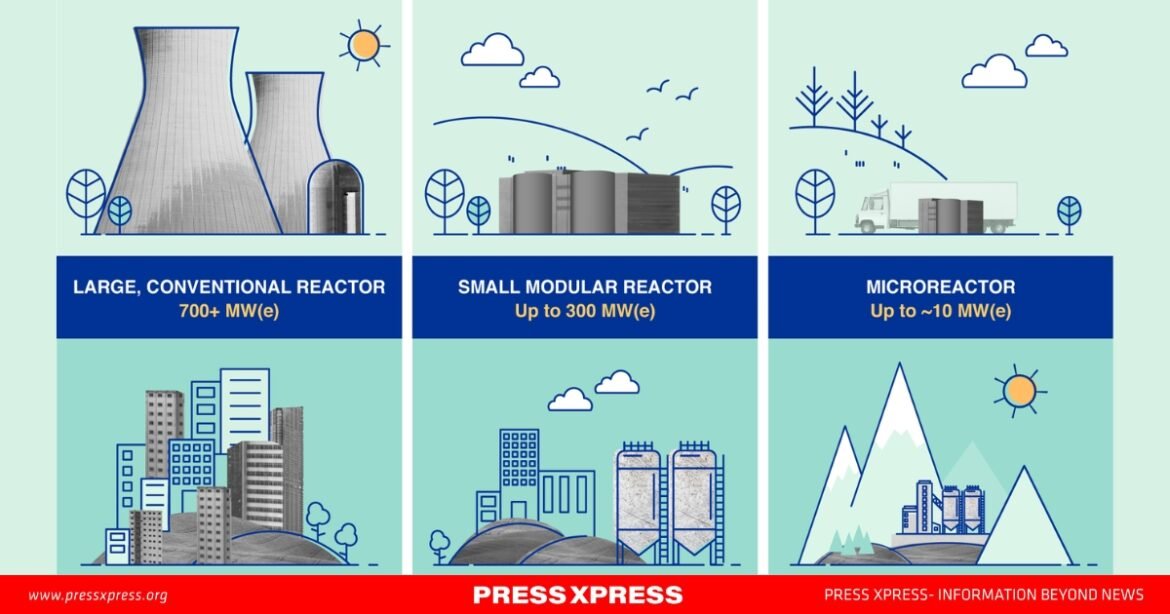Educating communities about the safety and environmental benefits of modern nuclear technologies is crucial for gaining support
The global pursuit of carbon neutrality has intensified discussions around sustainable energy solutions. Among various low-carbon options, nuclear energy stands out as a significant contender, promising a reliable and scalable power source. However, traditional nuclear reactors often face criticism due to concerns over safety, high costs, and waste management. This backdrop has elevated interest in Small Modular Reactors (SMRs) as a potential game-changer in nuclear technology. But are SMRs truly a safer and more realistic alternative to their larger counterparts in addressing climate change?
The Case for Nuclear Energy in Climate Mitigation
Nuclear power plants generate electricity without emitting greenhouse gases, a critical advantage in the fight against climate change. According to the International Energy Agency (IEA), nuclear energy accounts for approximately 10% of the world’s electricity and nearly 25% of its low-carbon electricity. Its ability to provide a stable energy output contrasts sharply with the intermittency of renewable sources like wind and solar, making it an essential component of a diversified energy portfolio.

Moreover, advancements in nuclear reactor technologies have significantly enhanced efficiency and reduced waste production. Innovations such as fast breeder reactors and molten salt reactors aim to optimize fuel usage and minimize by-products, strengthening the case for nuclear energy’s role in a sustainable future.
The Rise of Small Modular Reactors
SMRs represent a paradigm shift in nuclear technology. Unlike conventional large reactors that typically generate over 1,000 megawatts (MW), SMRs produce between 50 and 300 MW of electricity. These reactors are designed to be factory-assembled and transported to their installation site, simplifying construction and reducing costs. The modular nature also allows for incremental capacity additions, which can be particularly beneficial for regions with fluctuating energy demands or limited infrastructure.
Proponents argue that SMRs address many of the challenges associated with traditional nuclear reactors:
Enhanced Safety Features: SMRs incorporate passive safety systems that rely on natural processes like convection and gravity, reducing the likelihood of catastrophic failures. These designs eliminate the need for active intervention during emergencies, offering a significant safety advantage.
Cost-Effectiveness: The smaller size and modular construction of SMRs allow for mass production, potentially reducing per-unit costs. Additionally, the shorter construction timeline compared to conventional reactors lowers financial risks.
Flexibility in Deployment: SMRs can be deployed in remote areas, islands, or regions with limited grid infrastructure. Their smaller footprint and reduced water requirements make them suitable for a wider range of locations.
Waste Management Improvements: Some SMRs are designed to use spent nuclear fuel from traditional reactors, addressing a critical challenge of waste management.
Safety Concerns and Challenges
While SMRs promise enhanced safety, the technology is not without its critics. Concerns persist over the lack of operational data, as most SMR designs remain in developmental or early deployment stages. Additionally, the decentralized nature of SMRs raises questions about the potential proliferation of nuclear materials and the challenges of monitoring and regulating multiple smaller units across diverse locations.
Economic viability is another pressing issue. While SMRs aim to be cost-effective, the upfront research and development costs are significant. Achieving economies of scale requires widespread adoption, which hinges on regulatory approvals, public acceptance, and market demand.
SMRs vs. Traditional Reactors
The safety improvements of SMRs stem from both their design and operational characteristics:
Reduced Core Size: The smaller core in SMRs reduces the risk of overheating.
Passive Safety Systems: By relying on natural laws rather than mechanical or human intervention, SMRs enhance reliability during emergencies.
Simplified Systems: The compact and modular design reduces the complexity of components, minimizing points of failure.
In contrast, traditional reactors, while reliable, require extensive safety mechanisms and rigorous operational protocols, often making them susceptible to human error or mechanical failures.
One of the compelling arguments for SMRs is their potential synergy with renewable energy. As countries transition to renewable-dominated grids, the intermittency of solar and wind energy necessitates stable backup power sources. SMRs can provide this stability without the carbon emissions associated with fossil fuel-based alternatives. Additionally, the smaller size and modularity of SMRs make them suitable for grid balancing and supporting microgrid configurations.
Public Perception and Regulatory Hurdles
Despite their potential, public acceptance remains a significant barrier for SMRs. Decades of high-profile nuclear accidents have left a legacy of mistrust. Educating communities about the safety and environmental benefits of modern nuclear technologies is crucial for gaining support.
Regulatory frameworks also need to evolve to accommodate the unique characteristics of SMRs. Traditional licensing processes, designed for large reactors, can be overly complex and costly when applied to smaller units. Streamlining these processes while maintaining rigorous safety standards will be essential for the widespread adoption of SMRs.
Conclusion
As the world grapples with the urgent need to decarbonize energy systems, nuclear energy emerges as a formidable ally in achieving climate goals. Small Modular Reactors, with their innovative designs and safety enhancements, offer a promising pathway to revitalize the nuclear sector. However, realizing their potential requires overcoming technological, economic, and societal challenges.
SMRs are not a panacea but rather a complementary solution in a broader strategy to mitigate climate change. When integrated thoughtfully with renewable energy and supported by robust regulatory frameworks, SMRs can help bridge the gap between sustainability ambitions and practical energy needs. The journey toward a low-carbon future demands bold innovations, and SMRs represent a step in the right direction.


